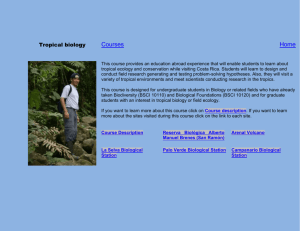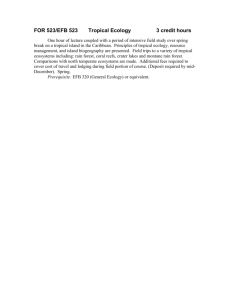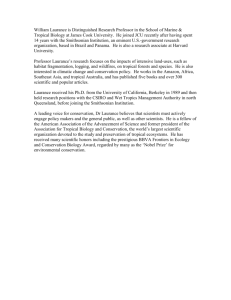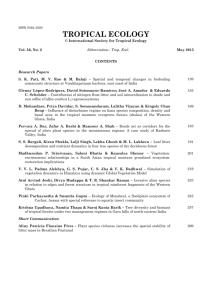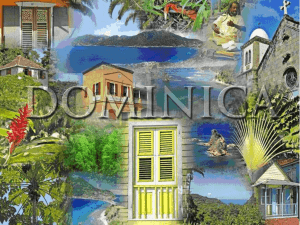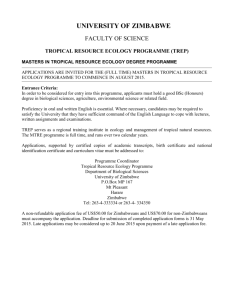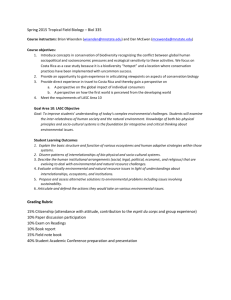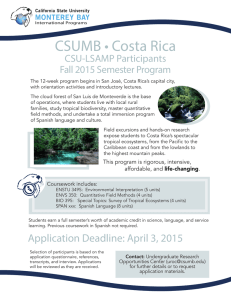Contact Information:
advertisement
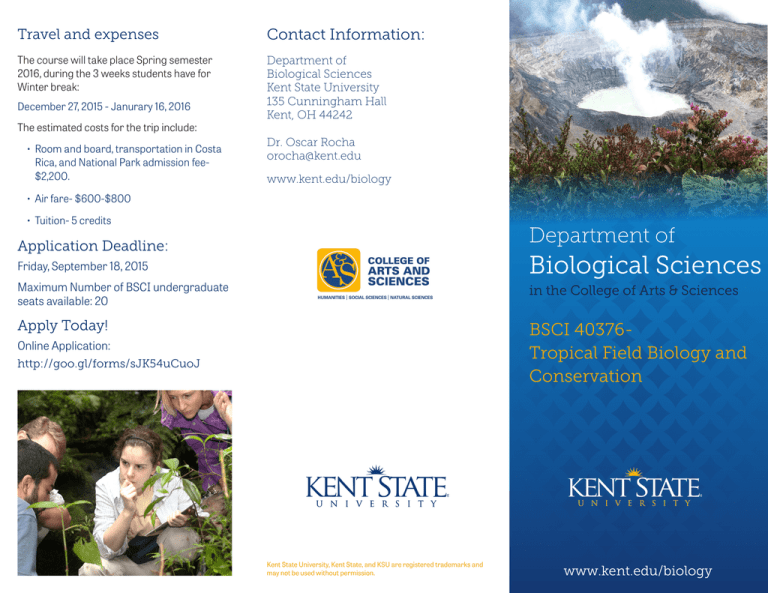
Travel and expenses Contact Information: The course will take place Spring semester 2016, during the 3 weeks students have for Winter break: Department of Biological Sciences Kent State University 135 Cunningham Hall Kent, OH 44242 December 27, 2015 - Janurary 16, 2016 The estimated costs for the trip include: • Room and board, transportation in Costa Rica, and National Park admission fee$2,200. Dr. Oscar Rocha orocha@kent.edu www.kent.edu/biology • Air fare- $600-$800 • Tuition- 5 credits Department of Application Deadline: Friday, September 18, 2015 Biological Sciences Maximum Number of BSCI undergraduate seats available: 20 in the College of Arts & Sciences Apply Today! BSCI 40376Tropical Field Biology and Conservation Online Application: http://goo.gl/forms/sJK54uCuoJ Kent State University, Kent State, and KSU are registered trademarks and may not be used without permission. www.kent.edu/biology Tropical Field Biology and Conservation This course is an adventure into the world of tropical ecology and conservation, designed to introduce students to many of the major issues in this field. Students will learn how to apply modern field-observation techniques to generate and test problem-solving hypotheses. In addition, participants will learn about the threats to the biological diversity of tropical ecosystems, resulting from human activities. Who can take this course? Tropical Field Biology and Conservation is ideal for undergraduate students who have taken introductory ecology or its equivalent, and for graduate students interested in tropical biology, field-study techniques or teaching methods in ecology. Teachers and alumni interested in natural history, ecology, or Central America would also be welcome to apply. Field Experience: the Classroom Course Highlights The course emphasizes the use of field work to address specific issues in tropical ecology. Students will be responsible for: Along with the lifetime experience of travel to the field stations in Costa Rica, students will be given the opportunity to learn about and participate in: • The design and collection of data in field projects under the supervision of participating faculty • Conducting data analysis and presenting results and conclusions to their classmates • Provide a written report for each of the four projects conducted in Costa Rica- reports to follow the format of a scientific article written for Biotropica- the journal of tropical biology and conservation. For more information, visit: www.kent.edu/biology • The tropics’ characteristics, biodiversity, and biogeography • Observing the characteristics of tropical rain forests, tropical seasonally dry forests, the mangrove forest • Geography and climate of Costa Rica • Diversity of plants and animals, tropical terrestrial, marine, and fresh water communities • Discovering the natural history of the plants and animals that inhabit the tropical landscapes • Ecology of major tropical communities • Patterns of land use and agroecology • Biological conservation
